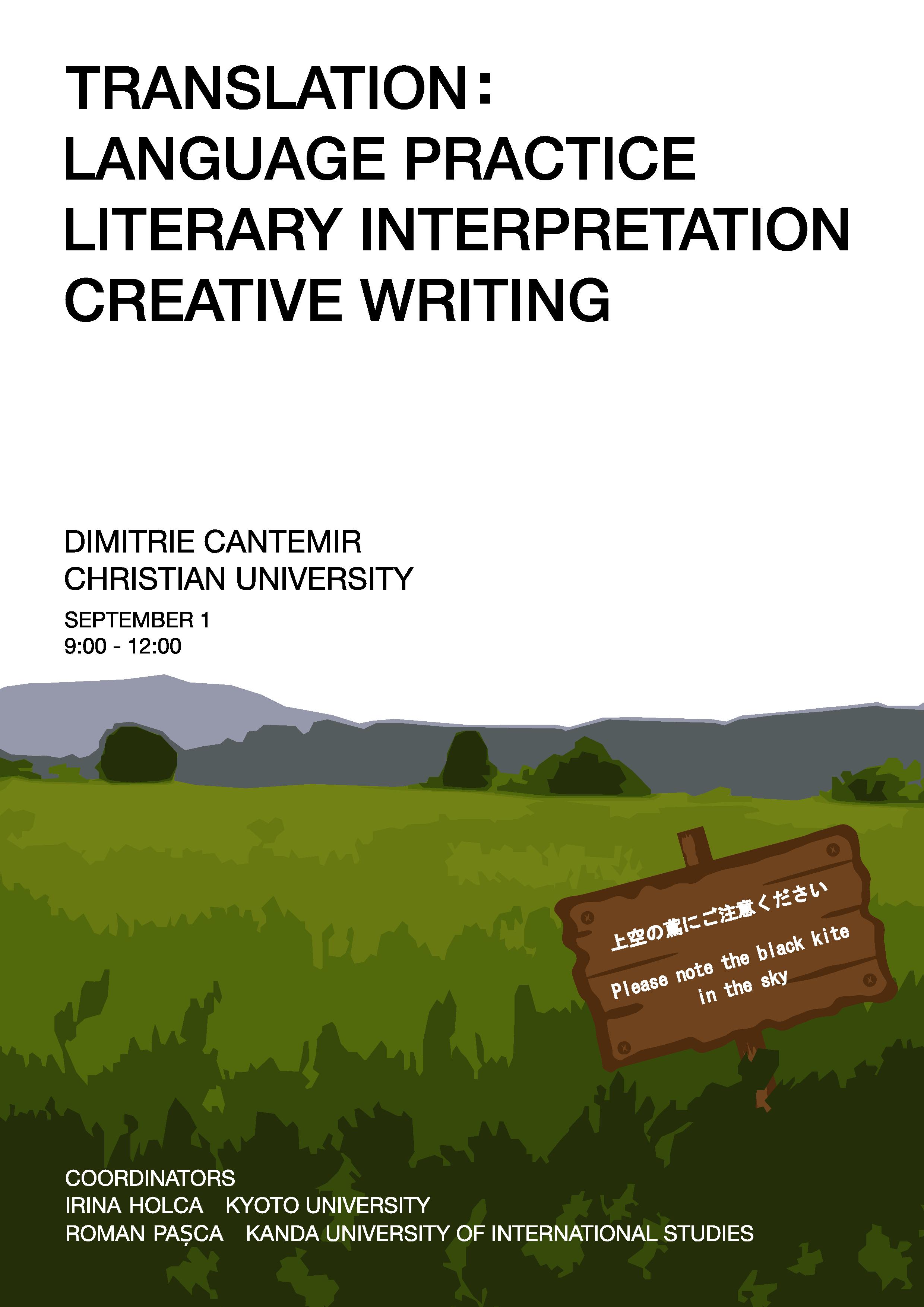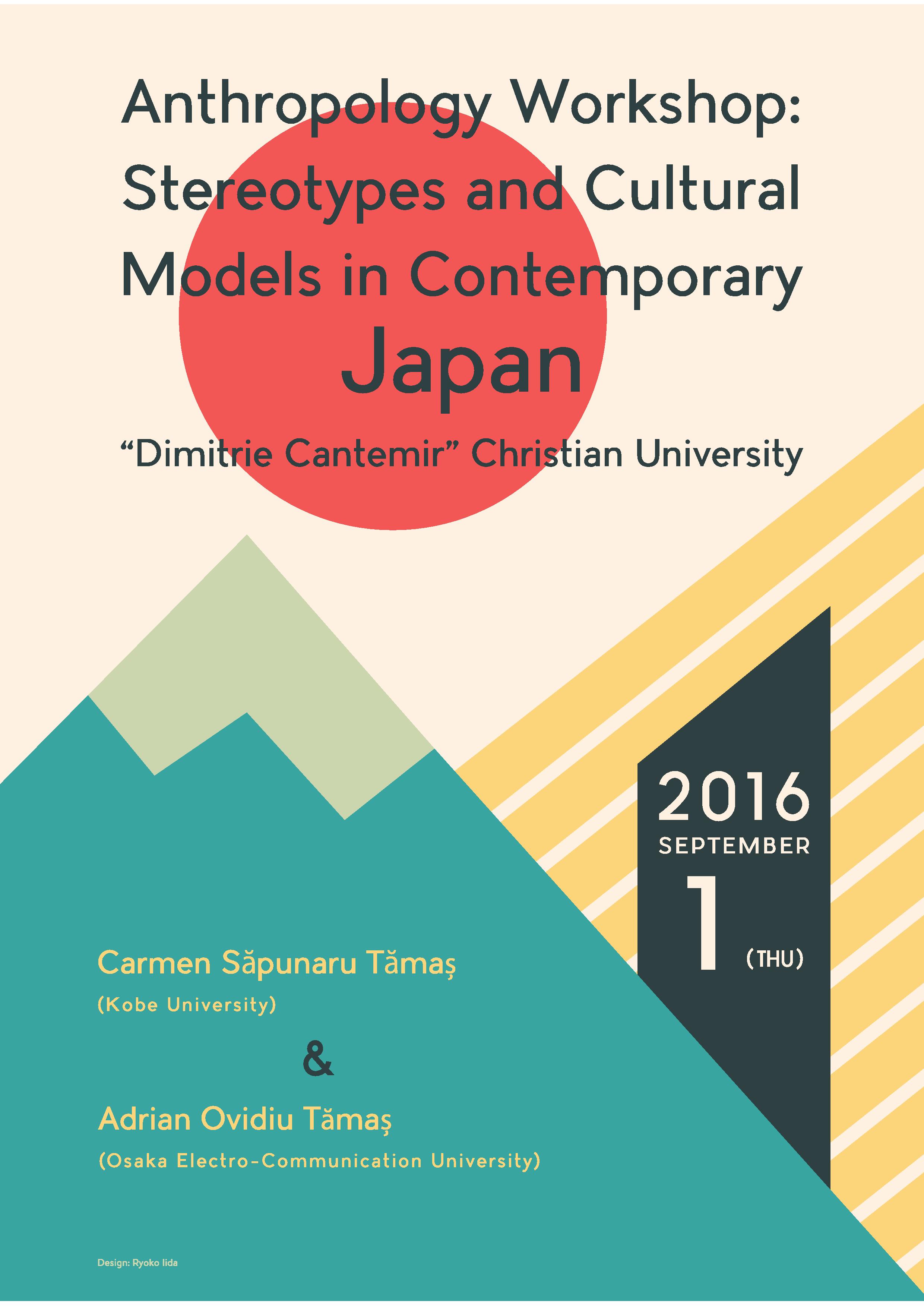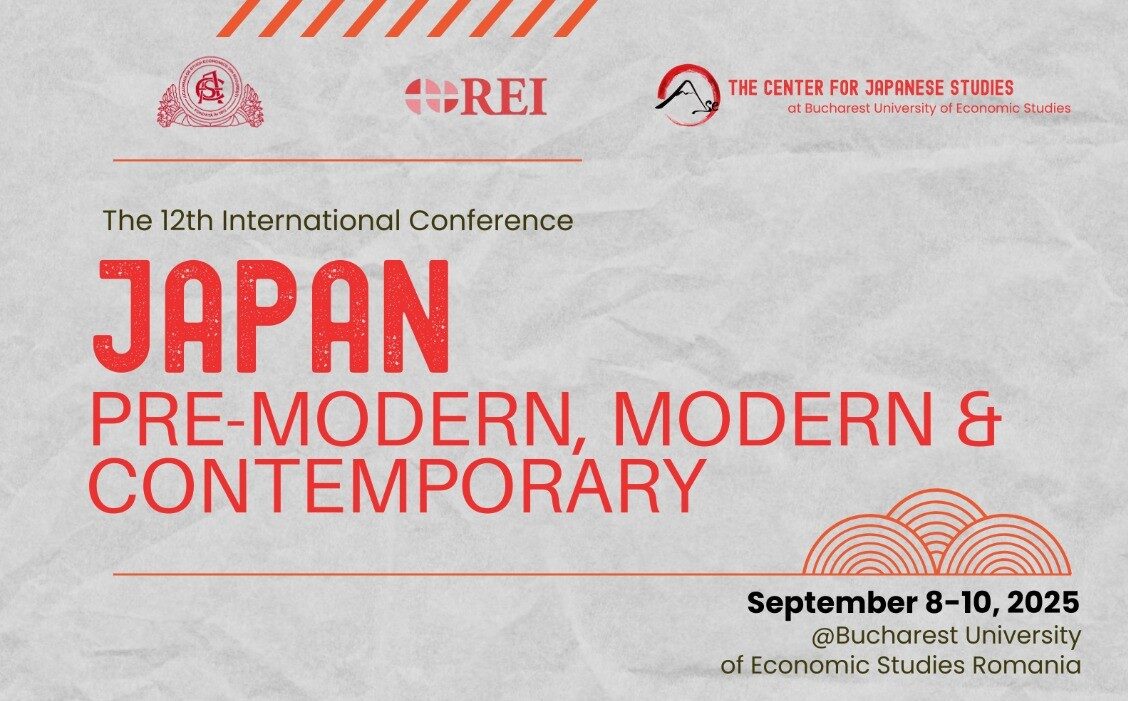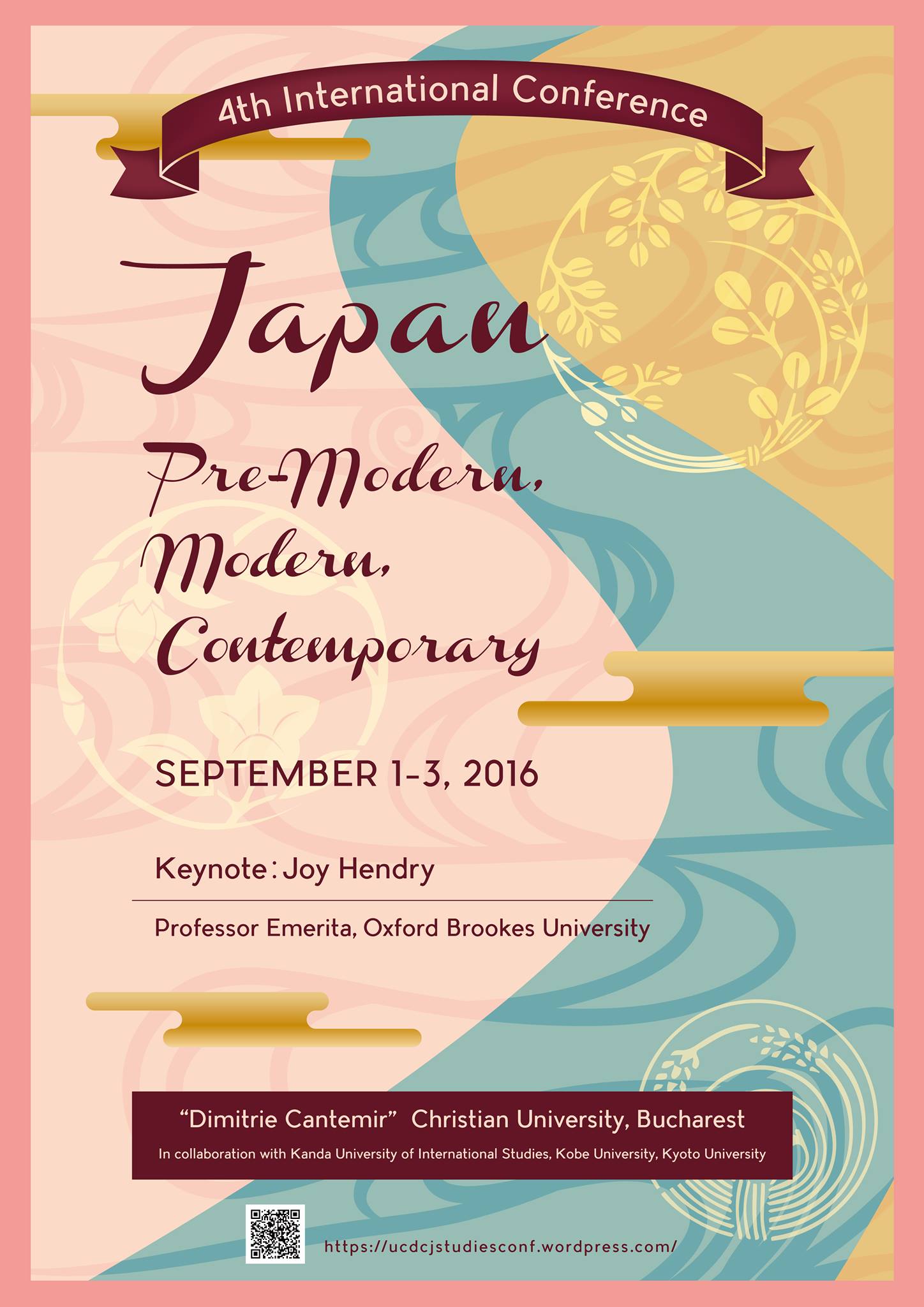Below you can find some information about the fourth edition of the conference (September 1-3, 2016): the program, the abstracts of the papers presented, and the outline of the two workshops. We had numerous sessions about culture, literature and linguistics, and about 40 participants from 6 countries.
Program:
****
Abstracts:
****
Workshops:
 Workshop 1: Translation: Language Practice, Literary Interpretation, Creative Writing
Workshop 1: Translation: Language Practice, Literary Interpretation, Creative Writing
Organizers: Dr. Irina Holca (Lecturer, Institute for Research in Humanities, Kyoto University) & Dr. Roman Pașca (Lecturer, Research Institute for Japanese Studies, Kanda University of International Studies)
Workshop structure:
Part I: The instructors will provide several examples of instances when the translation process of a (literary or philosophical) text goes back and forth between language practice, literary interpretation, and / or creative writing. Among other things, we will discuss Andō Shōeki’s invention of words and ideas, the post-Meiji Restoration attempt to translate / transpose Western concepts, and contemporary multilingual texts such as Chika Sagawa and Sawako Nakayasu’s Mouth: Eats Color.
Part II: The students will work on one (or more) assignment(s), such as pushing the limits of language (by playing with kanji to create new words, adding new meanings to extant words, or translating culture-specific concepts), translating a poem while making the whole process visible, or writing a poem / short story using language mixing methods. The results of their work will be exhibited as poster presentations on September 2 and 3.
***
 Workshop 2: Stereotypes and Cultural Models in Contemporary Japan
Workshop 2: Stereotypes and Cultural Models in Contemporary Japan
Organizers: Dr. Carmen Săpunaru Tămaș (Lecturer, Graduate School of Humanities and Faculty of Letters, Kobe University) & Adrian Ovidiu Tămaș (Lecturer, Osaka Electro-Communication University)
Workshop structure:
Part I: The instructors will provide a short introduction to anthropology, focusing on the anthropology of Japan and some relevant concepts, such as culture, cultural relativism, stereotype and cultural model. The perception of Japan in the West, as well as the reflection of the West in Japan will be discussed with the aid of a few selected studies.
Part II: Students will reflect on cultural images and stereotypes they are familiar with (Japan in Romania, “their” Japan, Romania in the world) and will try to de-construct them based on the concepts introduced during the first part of the workshop. The results of their work will be exhibited as poster presentations on September 2 and 3.

